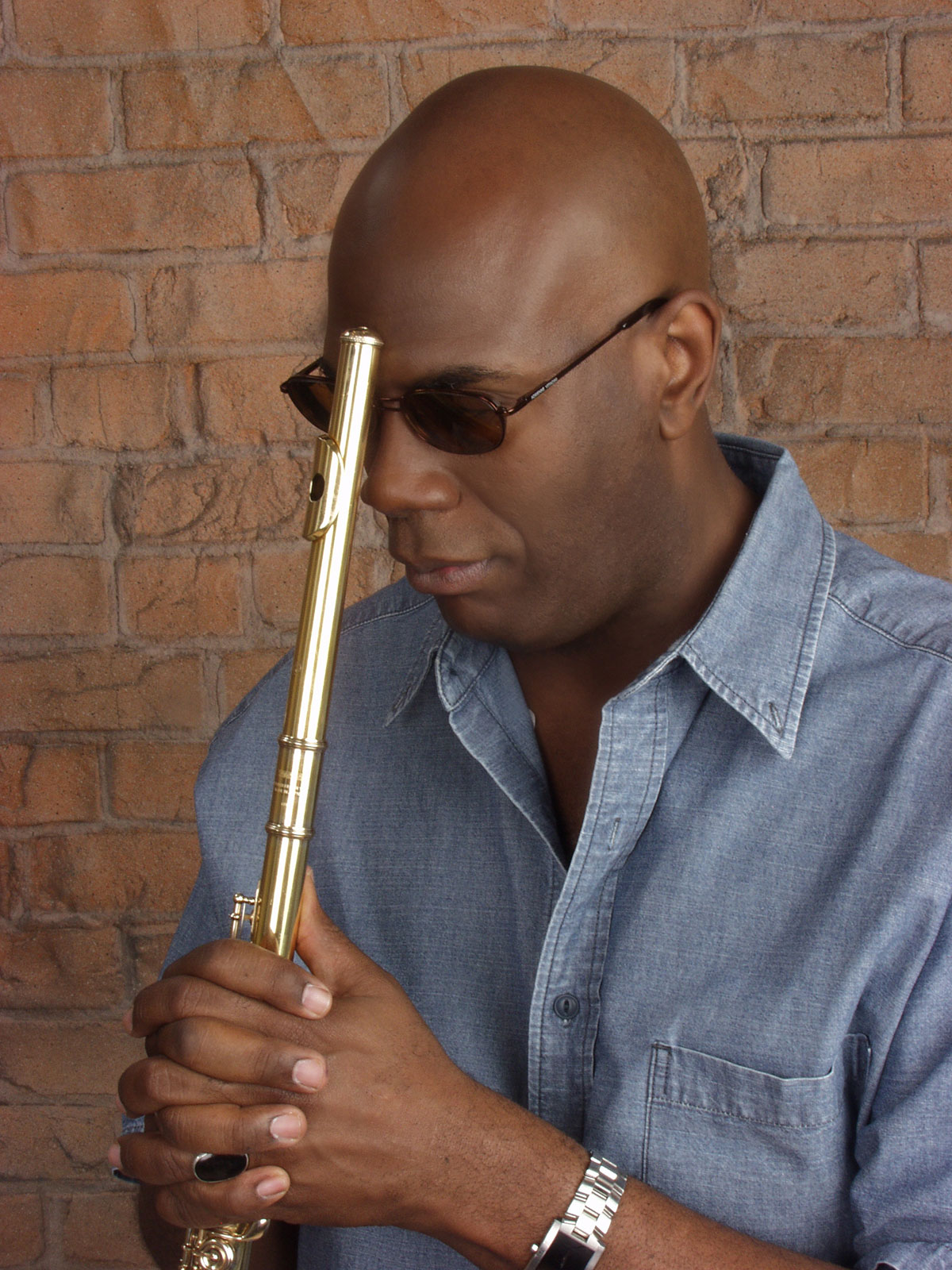Jazz flutist Galen Abdur-Razzaq recalled working as a music teacher at a high school in East Orange, N.J., during the early 1980s when a principal threatened to “take me outside and fight. One of the band members had to hold me back,” Abdur-Razzaq, now 71, recently recalled by phone from his Orlando-area home.
He had refused to work cafeteria duty as the principal had ordered, and that didn’t sit well with his boss. That run-in with the principal ended the Montclair, New Jersey, native’s short-lived school teaching career. “I couldn’t do it any more,” lamented Abdur-Razzaq, who studied at Boston’s renown Berklee College of Music.
For the past 38 years, Abdur-Razzaq has instead been touring colleges across the country to teach young men and women about the history of jazz and the Civil Rights movement, which Abdur-Razzaq lived through.
Abdur-Razzaq will bring his Civil Rights lessons and the music of his jazz quartet, which includes a pianist, bassist and drummer, to Bloomsburg University’s Carver Hall Tuesday, Feb. 26, for a free lecture and performance from 7-8:30 p.m.
BU is among over 100 colleges Abdur-Razzaq will visit this year with stories like the late John F. Kennedy’s 1963 presidential pardon of a black man, an unheard act during the Civil Rights era. JFK granted the pardon to jazz pianist Hampton Hawes after Hawes’ conviction for heroin possession. “JFK went to see (Hawes) perform as president and liked him so much he pardoned him,” Abdur-Razzaq said. “That a president would commute and African-American’s sentence was unbelievable.”
Abdur-Razzaq also speaks about the little-known contributions to the Civil Rights movement of white musical artists like crooners Frank Sinatra and Tony Bennett and late composer Leonard Bernstein. Bernstein helped fund the Black Panther party for a time, according to Abdur-Razzaq. “I call them the messengers” Abdur-Razzaq said of jazz musicians. “They’re just as important as the prophets on the planet. Well, maybe not to that degree. But they were unbelievable messengers. If you’re blessed enough to understand the music, you’re able to benefit from what they had to say through their instruments.”
Abdur-Razzaq’s musical lineage might be described as royal. He counts jazz saxophonist Jimmy Heath, now in his 90s, as his musical mentor. Heath performed alongside jazz legends John Coltrane and Charlie Parker during the big band era of he 1940s, and Heath would later replace Coltrane in a group led by Miles Davis. Abdur-Razzaq, who talks with Heath weekly to this day, said he met his future mentor while in his 20s and attending Saturday afternoon musical workshops in Harlem.
Abdur-Razzaq fell in love with the flute at the early age of 10 when he heard a teacher play the instrument at school. “He didn’t play it all that well,” Abdur-Razzaq said with a laugh, “but I loved the sound of it. I was hooked. I had a love for the drums (as well). But after my mom told me I couldn’t play the drums, I said, ‘No problem.’ I fell in love with the flute. I just heard it once and thought it was the most beautiful sounding instrument.”
Abdur-Razzaq, who owns an Orlando-based musical entertainment company called Flute Juice Productions, will also host a Poetry of Jazz workshop earlier that day at Carver Hall, from 1-2 p.m. The afternoon workshop will feature Abdur-Razzaq with BU student musicians and poets, as well as community members from the River Poets in Bloomsburg.
The workshop and the evening presentation are free and open to the public. Bloomsburg University’s College of Liberal Arts, Celebrity Artist Series and Multicultural Affairs sponsor both events. For additional information, contact the university box office at: 570-389-4409.
Bloomsburg University is one of 14 universities in Pennsylvania’s State System of Higher Education. The university serves approximately 8,900 students, offering comprehensive programs of study in the colleges of Education, Business, Liberal Arts and Science and Technology.

